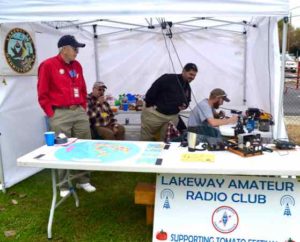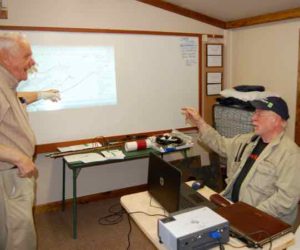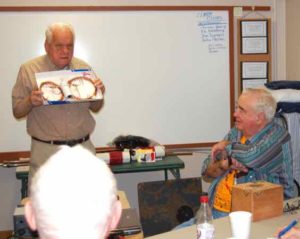Amateur Radio, conjointly called “ham radio”, permits enthusiasts to speak with other amateurs round the world, and experiment with all aspects of radio. If you have AN interest in something to do with radio communications, then amateur radio might be the hobby for you.
Why would i need to become a ham? 
If you’ve ever been fascinated by radio, dabbled with, radio or electronics, it’s worth considering becoming a radio amateur to learn more about technology and radio. If any of the following apply to you, you might be interested in finding out more.
- ever been Interested in electronics or gadgets?
ever listened Into shortwave radio listening?
Want to understand how radio works or looking to explore other areas of the radio spectrum?
Ever Played with a walkie-talkie as a kid, and want to know more?
Have a craving for a different technical hobby?
Open to furthering your knowledge and technical understanding? - There are many different directions that the amateur radio can take you in – here are just a few examples:
Using the 2 meter and 70cm bands you can talk to locals from your home, mobile, or portable.
Talk to other operators in the local general area , State, USA and countries around the world on HF Frequencies.
Link your computer to your radio and the Internet using technologies such as EchoLink, Digital modes such as PSK31 and JT65, learn and operate CW (morse code). - Contact the International Space Station, Some astronauts are licensed amateurs and are occasionally available for a contacts as they fly over.
Experiment with radio – Investigate different antenna types, radios types and transmission modes. Some amateurs are even bouncing signals off the moon.
Take part in contests to see how far you can get, and how many contacts you can make.
Events in the community and helping out in emergencies
Learn to operate Morse code (known as CW), and communicate around the world.
Special events – Amateurs are often out-and-about spreading the word about Events coming up.More than any of the above , amateur radio is about making friends. It’s a community, and amateur radio operators are really open to share their knowledge and help others, through the shared language of radio, it’s called being an elmer!How can I get started?You have to get a license to operate amateur radio equipment and to transmit on the amateur radio frequencies, but that’s not a big deal. Our club and others in the local ares offer classes and study sessions that teach you the basics, these are often short weekend or weekday evening courses or all day study sessions, which include exercises to help you understand the basics, plus training on the license conditions and technical basics. At the end of the course, is a multiple choice exam, and assuming you pass, you can be licensed and on-air operating in a matter of days.
- Getting started with amateur radio involves several steps. Here’s a detailed guide to help you get started:
-
- Research and Learn: Familiarize yourself with amateur radio by reading books, magazines, and online resources.
- Study for the License Exam: To operate an amateur radio station in the United States, you need a license from the Federal Communications Commission (FCC). Choose a license class from technician, general or amateur extra, and check the current question pool and exam dates. Find a study material that suits your learning style, such as books, videos, apps or flashcards.
- Take the License Exam: Find an exam location and date from one of the volunteer exam coordinator groups, ARRL.
- Obtain Your Call Sign: After passing the exam, you will be assigned a call sign.
- Choose Your Equipment: Get a radio, preferably a handheld one, and learn how to use it and improve it with better antennas or accessories2.
- Set Up Your Station: Once you have your equipment, you can set up your station.
- Learn Operating Procedures and Etiquette: It’s important to understand the proper procedures and etiquette when operating your radio.
- Get On the Air: Now that you’re set up, it’s time to start communicating.Remember, the world of amateur radio is vast and there’s always something new to learn. Enjoy your journey into this fascinating hobby

